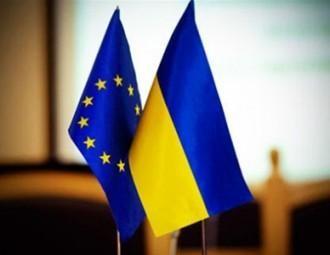EU has watered down Vilnius Declaration

The EU has watered down its language regarding the conditions for bloc membership for six former Soviet republics in the draft final declaration of the upcoming EU's EaP summit in Vilnius.
The summit's final declaration -- a draft of which was seen by RFE/RL -- does not currently include Article 49 from the EU treaty that allows any European country to apply for membership if it "respects the fundamental values of the EU."
That had been in a previous version of the declaration, which is to be signed by officials from Ukraine, Belarus, Moldova, Georgia, Armenia, and Azerbaijan on November 29 in Lithuania.
The draft document instead mentions that "the participants of the Vilnius summit reaffirm the acknowledgment of the European aspirations and the European choice of some partners and their commitment to build deep and sustainable democracy."
Article 49 is significant both from a legal and symbolical point of view.
Its exclusion represents a blow for countries favouring EU enlargement, such as Poland and Sweden, which had hoped to give the countries of the Eastern Partnership a boost in their quest to be more closely associated with the bloc.
That had been in a previous version of the declaration, which is to be signed by officials from Ukraine, Belarus, Moldova, Georgia, Armenia, and Azerbaijan on November 29 in Lithuania.
The draft document instead mentions that "the participants of the Vilnius summit reaffirm the acknowledgment of the European aspirations and the European choice of some partners and their commitment to build deep and sustainable democracy."
Article 49 is significant both from a legal and symbolical point of view.
Its exclusion represents a blow for countries favouring EU enlargement, such as Poland and Sweden, which had hoped to give the countries of the Eastern Partnership a boost in their quest to be more closely associated with the bloc.
Instead more enlargement-sceptic countries headed by Germany, France, and the Netherlands, as well as several southern EU states, appear to have triumphed.
They succeeded in weakening the text even further as it currently refers to the six Eastern Partnership nations as "countries" or "partner countries" instead of "states." That is also seen as weakening the link to enlargement prospects.
In the final draft they are only called "states" on one occasion, which is a copy of a similar declaration dealing with the EU's "southern neighbourhood," which includes mainly North African countries.
Interesting to note in the draft final declaration is that one statement: "Today. The EU-Ukraine Association Agreement, including the DCFTA (Deep and Comprehensive Free Trade Area) has been signed," is still within brackets.
It can be inferred from this that EU members are still holding out the possibility that Ukrainian President Viktor Yanukovych could change his mind before or during the summit and decide to sign the much-debated Association Agreement and DCFTA.
Kyiv's decision late last week to not sign those pacts is the reason for the ongoing demonstrations in Ukraine.
Good for Moldova
The EU members also write in the draft text that they "welcome the achievement of Moldova in fulfilling the benchmarks of its visa-liberalization action plan."
Chisinau got the green light from the EU Commission earlier this month and the positive wording from the EU member states makes it possible for Moldovans to have visa-free travel to the Schengen zone by the end of 2014.
That the member states opted to omit the word "all" ahead of "the benchmarks" does, however, show that the new visa regime isn't a fait accompli and that the issue will be debated.
The Vilnius declaration, which outlines what has been achieved thus far and what is expected to happen ahead of the next summit in 2015, will now be scrutinized by officials from Armenia, Azerbaijan, Belarus, Georgia, Moldova, and Ukraine on November 27 before it will be endorsed formally by the heads of state and government in the Lithuanian capital on November 29.
Even though some countries keen on European integration, such as Georgia and Moldova, might be unhappy with the latest wording, the six Eastern partnership countries as a group are in a poorer bargaining position as Armenia and, with all likelihood, Ukraine appear to have moved closer to the Russian-led Custom's Union in recent months.
Frozen Conflicts
The six EU Eastern Partnership countries are expected, however, to try to include some wording in the documents with regard to the various frozen conflicts in the region.
The draft declaration is free of paragraphs about Abkhazia, South Ossetia, Nagorno-Karabakh, and Transdniester, but it's possible some of the Eastern partner countries will try to add lines about those disputed territories, with the most heated discussion expected between Armenia and Azerbaijan over Nagorno-Karabakh.
Belarus might also attempt to once again try to remove paragraphs referring to the EU's engagement with "Belarusian society" and Brussels' commitment to support the people of Belarus, which still remain in the text.
-
03.01
-
07.10
-
22.09
-
17.08
-
12.08
-
30.09








































